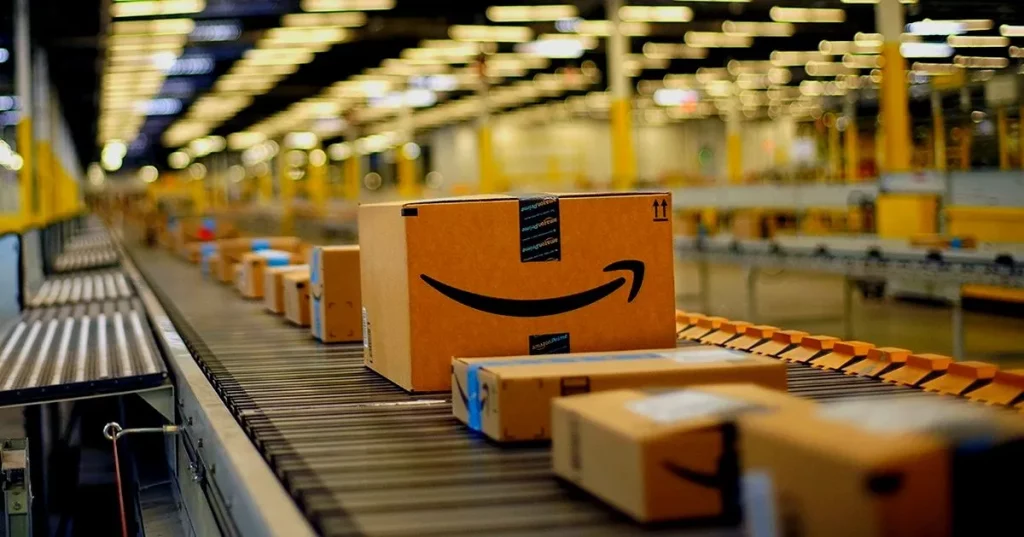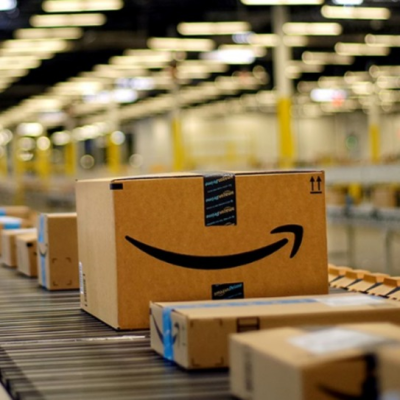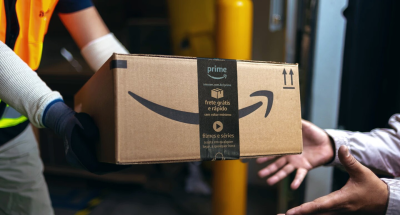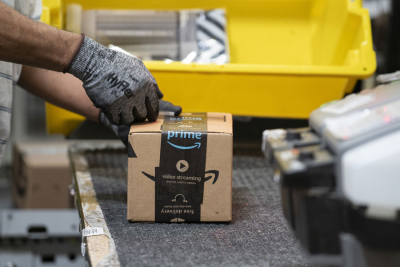Introduction: Amazon’s Evolution and Impact on the Global Market
Amazon, founded by Jeff Bezos in 1994, has grown from a modest online bookstore into a global e-commerce and tech powerhouse. The company’s rapid expansion and innovative business strategies have revolutionized various industries, making Amazon a household name and a dominant player in the market. This article delves into Amazon’s strengths, weaknesses, interesting facts, and career opportunities, providing a comprehensive overview of this e-commerce giant.
Amazon’s Strengths: Innovation and Customer-Centric Approach
Unmatched Product Range and Global Reach
Vast product range and global reach are two of its most significant strengths. The company offers everything from books and electronics to groceries and apparel, making it a one-stop-shop for consumers worldwide. This extensive product selection, coupled with an efficient global supply chain, ensures that can meet diverse customer needs.
For instance, Amazon Prime, a subscription service, offers members free two-day shipping, access to streaming services, and exclusive deals, further enhancing customer loyalty. Ability to deliver a wide array of products quickly and efficiently has cemented its position as a leader in e-commerce.
Technological Innovation and R&D
Commitment to innovation and research and development (R&D) is another key strength. The company consistently invests in cutting-edge technology to improve its services and operations. For example, (AWS) has become a major player in cloud computing, providing scalable and reliable infrastructure to businesses of all sizes.
Additionally, Amazon’s foray into artificial intelligence (AI) and machine learning, exemplified by products like Alexa and advanced logistics systems, showcases its innovative spirit. By leveraging technology to enhance customer experience and streamline operations, continues to stay ahead of its competitors.
Amazon’s Weaknesses: Challenges and Controversies
Regulatory Scrutiny and Legal Challenges
Despite its success, Amazon faces significant regulatory scrutiny and legal challenges. The company’s market dominance has attracted attention from antitrust regulators worldwide, who are concerned about its potential to stifle competition. In several countries, Amazon has faced investigations and lawsuits related to its business practices.
For example, the European Union has launched multiple antitrust probes into Amazon’s use of data to gain an unfair advantage over third-party sellers on its platform. These regulatory challenges pose a threat to Amazon’s operations and could lead to increased compliance costs and operational constraints.

Labor Practices and Employee Welfare
Labor practices and employee welfare have also been a subject of controversy. The company has faced criticism for its treatment of warehouse workers, including concerns about working conditions, inadequate breaks, and pressure to meet high productivity targets. Reports of injuries and health issues among Amazon workers have raised questions about the company’s commitment to employee welfare.
In response, Amazon has implemented measures to improve working conditions, such as increasing the minimum wage and enhancing safety protocols. However, ongoing scrutiny and employee dissatisfaction highlight the need for further improvements in this area.
Interesting Facts and Curiosities About Amazon
Early Beginnings and Unconventional Strategies
One of the most fascinating aspects of Amazon’s history is its humble beginnings in Jeff Bezos’s garage. Bezos initially named the company “Cadabra,” but later changed it to Amazon, inspired by the world’s largest river, to reflect the company’s ambitious vision.
Unconventional strategies have also played a crucial role in its success. For instance, the company’s decision to operate at a loss for several years to reinvest profits into growth and innovation was initially met with skepticism. However, this long-term approach eventually paid off, allowing Amazon to dominate the e-commerce landscape.
Acquisition Spree and Diversification
Acquisition spree and diversification efforts have significantly contributed to its growth. The company has acquired numerous businesses across various industries, including Whole Foods Market, Zappos, and Ring. These acquisitions have enabled Amazon to expand its product offerings and enter new markets.
Additionally, diversification into entertainment through Amazon Studios and its investments in logistics infrastructure, such as the development of a delivery drone program, illustrate its ability to adapt and innovate in a rapidly changing market.
Amazon’s Logistics Network: Efficiency and Speed
Revolutionary Fulfillment Centers
Fulfillment centers are the backbone of its logistics network, enabling the company to deliver millions of products quickly and efficiently. These centers are strategically located around the world and are equipped with cutting-edge technology, including robotics and AI.
Focus on automation and efficiency in these centers ensures that products are processed and shipped with minimal delays. The company’s investment in advanced logistics technology has set new standards for the industry, making rapid delivery a norm rather than an exception.
Prime Air: The Future of Delivery
One of the most exciting developments in logistics is Prime Air, the company’s drone delivery program. Prime Air aims to deliver packages to customers within 30 minutes using autonomous drones. This innovative approach has the potential to revolutionize the delivery industry by significantly reducing delivery times and costs.
Key features of Prime Air include:
- Autonomous drones capable of carrying packages up to 5 pounds
- GPS-based navigation systems for precise delivery
- Safe and environmentally friendly delivery methods
Amazon Go: Redefining the Retail Experience
The Concept of Checkout-Free Stores
Stores represent a significant leap forward in retail technology. These stores utilize a combination of computer vision, sensor fusion, and deep learning to enable a checkout-free shopping experience. Customers can simply walk into an Amazon Go store, pick up the items they want, and leave without stopping at a checkout counter.
The Amazon Go experience is made possible by the company’s Just Walk Out technology, which automatically detects when products are taken from or returned to the shelves and keeps track of them in a virtual cart. This seamless shopping experience reduces wait times and enhances customer convenience.
Expansion and Impact
Since the launch of the first Amazon Go store in 2018, Amazon has been steadily expanding its network of checkout-free stores. The concept has been well-received by customers who appreciate the convenience and efficiency of the shopping experience. Moreover, Amazon Go has influenced the retail industry by pushing competitors to explore similar technologies and innovations.
The success of underscores Amazon’s commitment to leveraging technology to improve customer experiences and redefine traditional retail.

Amazon’s Environmental Initiatives
The Climate Pledge
In 2019, Amazon co-founded The Climate Pledge, committing to meet the Paris Agreement ten years early and be net-zero carbon by 2040. This ambitious initiative includes measures such as:
- Purchasing 100,000 electric delivery vehicles
- Investing in renewable energy projects to power Amazon’s operations
- Implementing sustainable packaging solutions to reduce waste
Amazon’s Renewable Energy Projects
One of the largest corporate purchasers of renewable energy in the world. The company has numerous solar and wind projects across different countries, contributing to a significant reduction in its carbon footprint.
Key renewable energy projects include:
- Amazon Wind Farm Texas: A large-scale wind energy project that produces over 1 million MWh of clean energy annually.
- Solar Rooftop Projects: Installation of solar panels on fulfillment centers and other buildings to generate renewable energy on-site.
Amazon’s Influence on the Tech Industry
AWS and Cloud Computing Dominance
Web Services (AWS) has become a cornerstone of business, dominating the cloud computing market. AWS provides a wide range of services, including computing power, storage, and databases, which are used by millions of customers worldwide.
AWS has set industry standards for cloud computing, enabling businesses to scale their operations, reduce costs, and innovate rapidly. The success of AWS highlights ability to leverage its infrastructure and technological expertise to create new business opportunities.
Artificial Intelligence and Machine Learning
Leader in artificial intelligence (AI) and machine learning, with applications spanning from voice recognition to personalized recommendations. Products like Alexa, virtual assistant, showcase the company’s AI capabilities and their integration into everyday life.
Amazon’s AI initiatives include:
- Amazon Rekognition: An image and video analysis service that can identify objects, people, text, and activities.
- Personalization Algorithms: Advanced algorithms that provide personalized product recommendations to enhance the shopping experience.
Career Opportunities at Amazon: A Dynamic Work Environment
Diverse Roles and Career Paths
Offers a wide range of career opportunities across various fields, from software development and data science to logistics and customer service. The company’s diverse roles and career paths provide employees with ample opportunities for growth and development.
For example, rotational programs and leadership development initiatives are designed to nurture talent and prepare employees for leadership roles. These programs offer hands-on experience and exposure to different aspects of the business, helping employees build a comprehensive skill set.
Commitment to Employee Development
Commitment to employee development is evident in its investment in training and education programs. The company’s Career Choice program, which pre-pays 95% of tuition for courses in high-demand fields, empowers employees to pursue further education and advance their careers.
Moreover, Emphasis on continuous learning and development fosters a culture of innovation and improvement. By providing resources and opportunities for professional growth, ensures that its employees are equipped to tackle new challenges and contribute to the company’s success.
Conclusion: Amazon’s Impact and Future Prospects
Journey from a small online bookstore to a global e-commerce and tech giant is a testament to its innovative spirit and customer-centric approach. The company’s strengths, including its vast product range, technological innovation, and commitment to customer service, have driven its success and market dominance.
However, also faces challenges, such as regulatory scrutiny and labor practices, which require ongoing attention and improvement. By addressing these issues and continuing to innovate, can maintain its competitive edge and continue to shape the future of commerce and technology.












